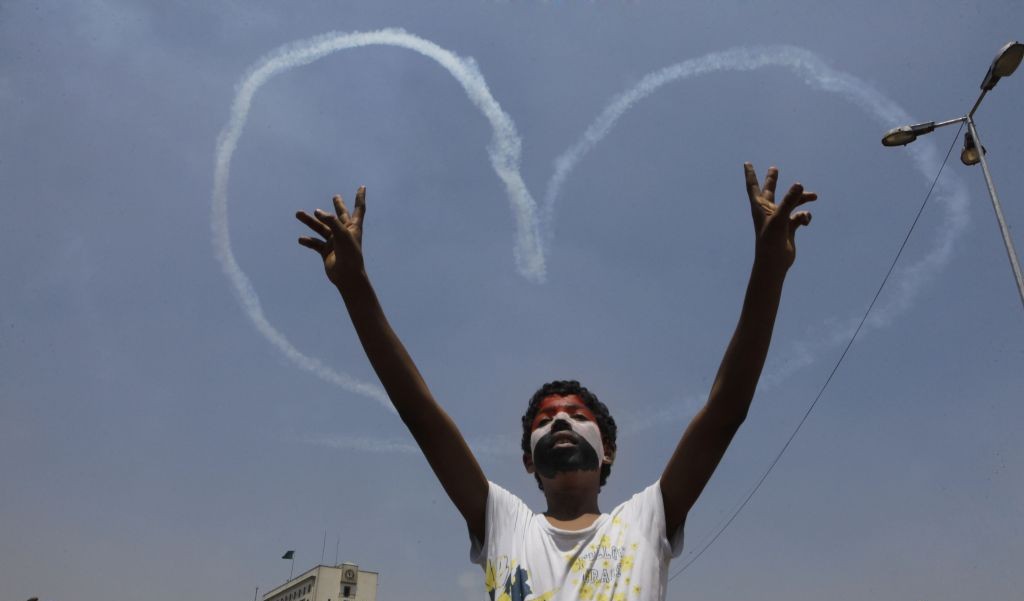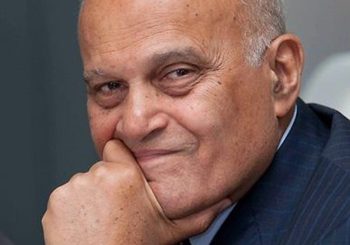After two major uprisings, the goals of Egypt’s revolution are still far from being achieved.
By Hassan Fayed, contributor, EgyptianStreets.com
It appears that the June 30 alliance between the revolutionary youth and supporters of the military is broken and cannot be reconciled – at least not any time soon. It would have been naïve to believe it had any chance of lasting, but the break up wasn’t expected to be so bitter.
Today, proponents of each side – whether it be the January 25 activists or the government’s supporters – believe that only one side will emerge victorious, turning it to a zero-sum game. Accusations of treason, pragmatism, conspiracies and blind support surface Egyptian media as often as cars beep during Cairo’s rush hours.
In the middle of this senseless war zone, sits the vast majority of the Egyptian people who supported both uprisings. I became a troubled, naive and disoriented member of this majority. We are caught in the crossfire, trying to cover our ears and close our eyes, hoping that all this will just fade away. But the noise is too loud that it penetrates any barrier and the image is too petrifying that we cannot resist watching because we fear that if we do not watch, it will only get worse.
We no longer know what is right and what is wrong, as the smoke thickened so heavily that we can no longer see our compass. Was January 25 a revolution or a conspiracy? Was June 30 a revolution apart or a rectification? Were we just manipulated by superior forces over the past three years?
I decided to sit the troubled, naive and disoriented self that I am, and simply assessed the pros and cons of both events. I discarded all the media frenzy and based my arguments on my own personal experience. I found that the difference between January 25 and June 30 is that the prior was a move towards the future, towards something new; while the latter was a move towards the preservation of the past.
In 2011, we didn’t take to the streets just to bring down the regime, but to build a nation. We did not fear the present that was filled with tear gas and bullets because we were confident that the future would be filled with hopes and dreams.
We felt safe when the police had withdrawn and prisoners had escaped, because we felt empowered to defend our country as we were certain that tomorrow would be a brighter day. We cleaned the streets, painted pavements and planted trees because we felt purposeful.

In 2013, we didn’t protest for a dream, but to bring down a regime and restore a stolen identity. We feared the present that was filled with hearts in the sky out of fear of a future that could be filled with bloodshed and terror. We felt unsafe when the police was at every corner and the prisons were filled, as we were unsure about tomorrow. We refrained from engaging in the political sphere and started to consider leaving the country because we felt depressed.
I remember going to a lecture by Dr. Farouk El Baz in 2011 at the Biblothecca Alexandrina. In it he revealed a project that he claimed would develop Egypt. The main hall at the Bibliothecca was so packed that they had to set up screens in the courtyard for the hundreds of attendees who could not enter. There was a zeal to create and to develop that simply did not present itself following Morsi’s overthrow.
Today, universities are shut and burned as students no longer see the purpose of educating themselves. January 25, meanwhile, inspired the rise of music, art, literature, and development projects. It inspired swathes of youth to tackle various social issues and to push for political and economic reform that would represent the blood and sweat that was shed during the revolution.
Bassem Youssef, Oscar-nominated film The Square, street art and the rise of musicians such as Cairokee are all prominent products of the January 25 revolution. Meanwhile, June 30 inspired Teslam El Ayadi and smear campaigns on puppets.
The values of both events are equally primordial. June 30 was not necessarily less honorable than January 25, but it was also not as revolutionary or as glorious. Yet, not everything that came out of January 25 was as picturesque as it seems. There was no leadership, which led to the Brotherhood taking the front seat. Most of the activists who were at the front lines did not engage constructively, but rather insisted on maintaining their revolutionary path – which cost the country dearly. Meanwhile, many of the proponents of June 30 are the ‘old faces,’ with the old ideas that brought us where we are today. A revolution is not a change to restore a previous status quo. It is a transformation towards something new.
My conclusion is that there is only one revolution, which started on January 25. June 30 is a rectification of the revolution’s path, after it drifted off the rails under the realm of the Muslim Brotherhood. Its goals were limited to removing Morsi, in which it was successful. In contrast, the goals of the revolution are far from being achieved, and it is far from being over.
To follow the author of this opinion piece, Hassan Fayed, on Facebook click here, and on Twitter click here.






Comments (3)
Thanks for every other informative site. The place else could
I am getting that type of info written in such an ideal manner?
I have a project that I am just now working on, and I have been at the
glance out for such information.
fantastic!!!! 🙂